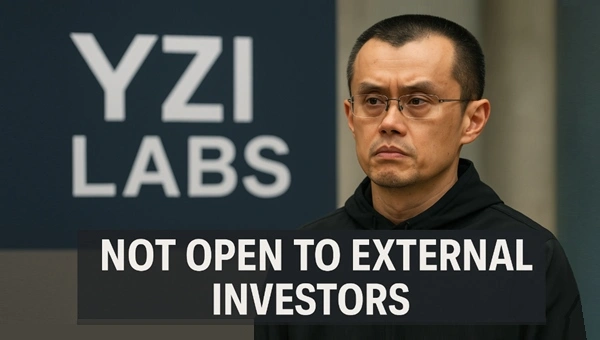

The Report That Lit the Fuse
Details emerged on September 23, painting YZi Labs as poised for expansion. The outlet described conversations with firm leaders about welcoming limited partners from beyond the inner circle. Head Ella Zhang reportedly acknowledged interest from outsiders and floated the idea of evolving the structure into something more inclusive.
The firm, she suggested, held deep know-how in Web3 but lagged in artificial intelligence and biotechnology, fields where fresh teams might soon form to attract collaborators.
A fact sheet highlighted over 230 backed projects, with roughly 70 percent in digital assets and more than 50 featuring token launches. Back in 2022, the group had tested external inflows by accepting around $300 million, only to return portions as internal resources swelled beyond need.
Such a move would mark a logical step amid crypto’s maturing ecosystem. Family offices like YZi Labs traditionally safeguard generational wealth through conservative plays in real estate or equities. This one, however, chased high-growth bets on decentralized tech, echoing the aggressive style that built Binance into a giant.
The report tied the timing to warmer regulatory winds in the U.S., noting a supposed request from the Securities and Exchange Commission for a private showcase of portfolio companies.
By evening, Zhao pushed back on social media, calling the article misleading and based on false claims. He stressed that YZi Labs had not sought outside funding. In a later clarification, he added that, to his knowledge, the firm remained fully closed. Hours afterward, Zhang repeated the same point, saying there was no plan to bring in limited partners.
YZi Labs traces its lineage to Binance Labs, the exchange’s venture arm that seeded hundreds of blockchain projects during crypto’s boom years. That era saw explosive growth: Bitcoin surged past $60,000 in 2021, drawing venture dollars into everything from layer-one protocols to decentralized finance platforms.
Binance Labs thrived, backing winners like Polygon and Axie Infinity amid the frenzy. Pressure mounted as regulators circled, culminating in the 2023 settlement that forced Zhao’s exit.
The rebrand came quietly in early 2025, post-release, as Zhao channeled his estimated $80 billion fortune into a leaner setup. A team of 12 now steers investments across stages, prioritizing ventures with solid traction in Web3, AI, and health tech. Recent moves underscore focus: a deepened stake in Ethena Labs, whose synthetic dollar USDe hit $1.3 billion in circulation this month.
Other holdings span Avalon Labs for cross-chain tools and a roster blending tokens with equity bets. This mix contrasts sharply with pure family offices, which often prioritize preservation over disruption. YZi Labs positions itself as an impact driver, funding startups that scale real-world adoption.
Ripples Across the Investment Tide
The episode exposes fault lines in crypto funding. External capital promises scale, letting firms like YZi Labs amplify bets on AI-blockchain hybrids or biotech tokenization. Yet it demands disclosures that could unearth vulnerabilities, especially for outfits shadowed by past fines.
Institutional players, from pension funds to sovereign wealth, now demand ironclad governance, a far cry from the wild-west days of 2017’s initial coin offerings.
Zhao’s firm, with its vast war chest, holds leverage without dilution. That choice sustains agility, allowing quick strikes on undervalued assets as markets consolidate. Broader trends bear watching: venture deployment in crypto dipped 40 percent last year but rebounds in 2025, per industry trackers, with AI crossovers drawing fresh billions. If YZi Labs holds course, it cements a model where founders retain reins, challenging the fundraise-or-fade imperative.
For now, the denial quiets chatter, but it invites deeper scrutiny. In an industry built on code and conviction, one unchecked story can cascade into capital flight or forced pivots. Zhao’s firm emerges intact, a reminder that in crypto’s next chapter, independence may prove the sharpest edge. As regulations evolve and opportunities multiply, will closed doors limit reach, or fortify against storms ahead? The answer shapes not just one portfolio, but the flow of finance itself.
He has worked with several companies in the past including Economy Watch, and Milkroad. Finds writing for BitEdge highly satisfying as he gets an opportunity to share his knowledge with a broad community of gamblers.
Nationality
Kenyan
Lives In
Cape Town
University
Kenyatta University and USIU
Degree
Economics, Finance and Journalism


Facts Checked by Eugene Abungana

 Fact checked by
Fact checked by 

 eabungana@gmail.com
eabungana@gmail.com 